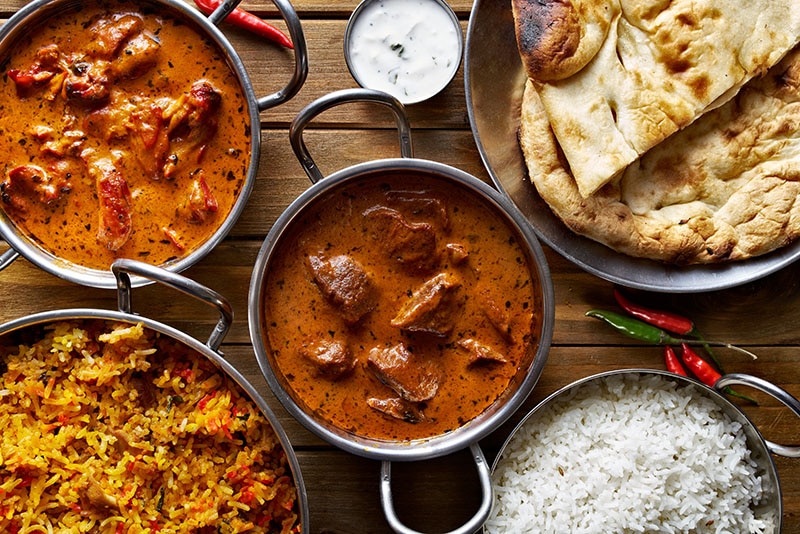Experiencing Indian Cuisine
Traveling abroad is a great learning experience. It is a unique experience that makes you more aware of yourself and the world around you. You can see new attractions and landmarks, learn about other cultures, and taste new foods. The education you gain and the memories you create from traveling abroad will come home with you. As does the food you experience.
While traveling abroad, trying new food is one of the best experiences you will have. At the same time, it can be somewhat intimidating. Different cultures utilize food and spices in different ways that could make you uneasy about what it is you are eating. Before you visit an Indian restaurant Oslo, you might want to learn about Indian foods and spices to make sure you appreciate what you are about to indulge in before you begin your travel. Learning about cooking traditions will enable you to recognize the flavors and appreciate how they come together to enhance your dining experience.
Indian cuisine uses many unique spices. Common native Indian spices are black pepper, turmeric, cardamom, and cumin. Other spices used in traditional Indian cuisine include asafoetida, cinnamon, coriander, fenugreek seeds, and star anise. Not only learning about these spices and how they are used in cooking but learning about their nutritional value will help you appreciate Indian cuisine and what it is doing for your health.
Health Benefits of Indian Spices
Some of the less-known spices that are used in Indian cuisine and their health benefits are listed below:
- Turmeric has anti-inflammatory and antioxidant properties. It has the potential to prevent heart disease, cancer, and Alzheimer’s.
- Cardamom may aid with bloating and heartburn.
- Cumin also is an anti-inflammatory and antioxidant and may help with digestion, asthma, and anemia.
- Asafoetida is known to help with cough and lung-related issues.
- Fenugreek seeds can reduce inflammation and may lower cholesterol and blood pressure.
- Star anise can aid with digestion, flu, and cough.
Health Benefits of Indian Grains
Not only are the above spices commonly used in Indian dishes beneficial to your health, but Indian cuisine also utilizes many healthy grains in its dishes. Bajra, jowar, and ragi are grown abundantly in India. The benefits of these grains are listed below:
- Bajra is rich in calcium, protein, magnesium, and iron. Plus it is gluten-free. It is known to be good for digestion and cholesterol reduction.
- Jowar is rich in iron and fiber and is also gluten-free. It is known to keep you fuller for longer, which can contribute to weight loss.
- Ragi is rich in protein and minerals. It is known for lowering cholesterol and improving diabetes and anemia.
Health Benefits of Indian Cooking Oils
Some common oils used for cooking Indian cuisine include coconut oil, peanut oil, and groundnut oil. Each has its unique benefits as follows:
- Coconut oil. Sometimes referred to as a superfood, coconut oil can promote fat burning. It can raise good cholesterol in your blood and is heart-healthy.
- Peanut oil. This is another oil that may aid in the reduction of cholesterol. It can also promote good skin and improve blood flow. It is also rich in antioxidants and may help in preventing cancer.
- Groundnut oil. This oil is rich in vitamin E and can be good for your heart, skin, and hair.
Now that you know more about the basics of Indian cuisine, its uniqueness, and how nutritional it can be, make sure you visit the local Indian restaurants when you travel abroad and experience their authentic flavors. Explore the unique spices and tastes and how the dish was created.
Once you return home from your travels, you can learn to cook your favorite Indian dishes in your own kitchen and relive your food experiences from abroad. Finding Indian spices is not that difficult. In fact, you can find Indian spice sets in stores or online that will get you started in recreating your favorite dishes. If you cannot easily find bajra, ragi, and jowar grains, or if you are having difficulty locating the peanut oil or groundnut oil in your local grocery, try looking online. You may be lucky enough to have a local Indian grocery store close by that you can support. This will give you ample product choices and allow you to explore more of the Indian cooking culture that you got to experience abroad.
Not everybody gets to travel abroad and experience true authentic cuisine. Many people do not even consider trying new foods by visiting their local ethnic restaurants. But now that you are an Indian culinary guru, you can give your friends and family a great learning experience and broaden their horizons by sharing your new love for Indian food. Now that you have obtained authentic Indian spices, oils, and grains, create your favorite dishes and share them with others. You can even duplicate Indian restaurant decor for a themed dinner party.

